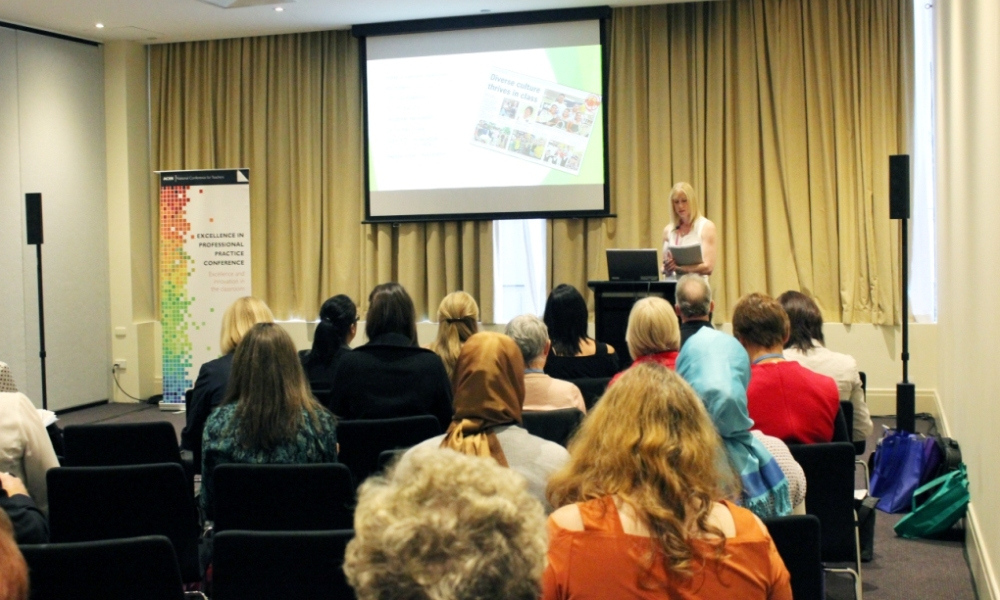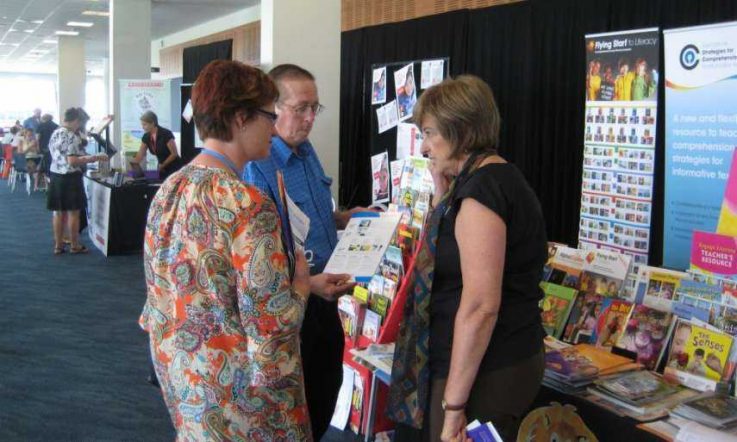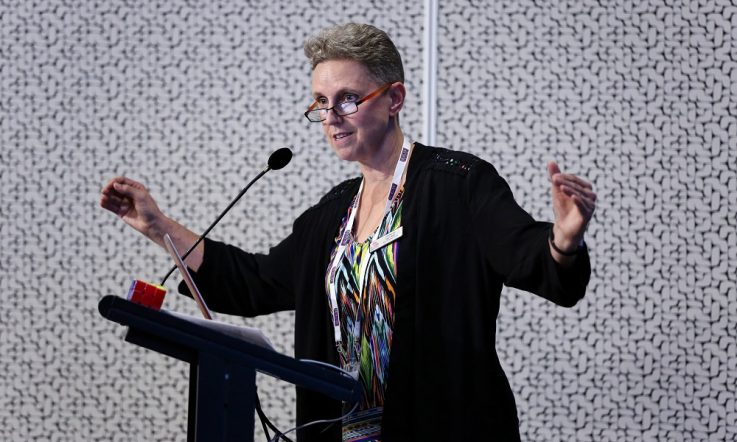School life has become so complex that collaboration is essential. It can provide multiple perspectives to solve a problem, more bodies to undertake a task, and even funding to achieve important goals.
That's why the theme of the Excellence in Professional Practice Conference (EPPC) 2016 is Collaboration for school improvement.
What is EPPC about?
EPPC is a conference 'by practitioners, for practitioners' because the program is almost completely made up of reports of school-based improvement projects. It's a wonderful opportunity for schools to reflect, document and share their experiences, and can lead to new partnerships and collaborations.
This annual event is hosted by the Australian Council for Educational Research (ACER). Previous conferences focused on themes of Australian Curriculum, Teachers driving school improvement, and Improving assessments of student learning.
There's no restriction on curriculum areas, but we would love to see more presentation proposals from teachers working beyond literacy and numeracy!
The process is simple:
- You submit a 300 word abstract through the EPPC website;
- A panel of teachers across Australia reviews the proposal and provides feedback;
- You make adjustments based on the reviewers' suggestions and resubmit;
- The program committee makes final decisions on acceptance and schedules the program;
- If accepted, you present your project at the conference.
You must register for the conference to confirm your presentation. If you'd like to attend in any case, as many do, you can register now.
It's very common for teams of presenters to participate in EPPC, and it's only one way that (ACER) can share your work. Teacher magazine can work with you by publishing an article or podcast about your project, which can lead to wider recognition and support.
What formats is EPPC is looking for?
If you have identified a problem of practice, have been collaborating on an improvement project, and have some outcomes to share from your experience, EPPC 2016 will be a great place to present. Three formats are available: posters, presentations (30 minutes) or workshops (60 minutes).
Whatever format you'd like to use, you will need to encapsulate the project in 300 words, based on these prompts:
- What was the problem and how did you identify it?
- What action did you take?
- What outcomes are you achieving?
- Reflections and implications.
You also need to provide a title that captures the essence of your project.
It is really important that you write with an audience of teachers in mind. EPPC participants come from all over Australia and beyond, so avoid acronyms and local terminology if possible. Participants will choose sessions to attend based on your title and abstract which will be included in the program.
Poster: If you are at an early stage of your project, a poster might be most suitable. Printed posters will be displayed around the venue, and you should be prepared to be with your poster to answer questions during refreshments and networking sessions. Provide the detail of your abstract, plus images, data and links to more information.
Presentation: If your proposal is accepted for presentation, you will have 30 minutes allocated in a 90 minute session with other presenters. You don't need to write a 'paper' but the audience will appreciate a presentation that makes clear what you did and why, with some data that shows the progress of the project, and what you have learnt. Allow time for Q&A. Handouts on the day are also helpful. ACER would like to publish the presentations on its website, as so many people are interested in more information on school improvement.
Workshop: A workshop (60 minutes) requires more active participation from delegates, so if you would like to run one, we ask you to plan clearly and tell us how you will use the time to actively engage them.
The program committee may accept your proposal in a different category, depending on factors such as the reviewers' feedback and the program structure.
What sorts of collaboration are appropriate?
Because EPPC is a conference by practitioners for practitioners, we look for schools to lead each proposal, but we welcome all sorts of collaborations.
You might be working in professional learning teams within a school to improve learning, or connecting students locally and internationally in curriculum projects. You might have research partners or business partners who share your goals. Or, you might be collaborating broadly with philanthropic support.
Collaboration across communities is helping schools like Kincoppal-Rose Bay in New South Wales and Baimbridge College in Victoria, as the ACER report Partnering for School Improvement (Clerke, 2013) showed.
One of the 2015 EPPC Award winners at a large scale was the Empowering Local Learners Project, a collaboration between 17 schools and pre-schools in Port Augusta and Quorn (South Australia) and the Flinders University Centre for Science Education in the 21st Century.
Teachers work with a cognitive neuroscientist and Flinders University staff who help translate the theory into effective classroom practice in mathematics. The model incorporates professional learning, class modelling, reflection and collaborative planning and has led to a significant shift in practice for the focus teachers. The team told EPPC about their tools and practices and showed student perception data indicating that students find lessons more engaging and are increasingly rating mathematics as one of their favourite subjects. You can view the EPPC presentation at www.acer.edu.au/eppc/2015-presentations
Not ready to present yet?
Have you identified needs in your school or cluster that should be the focus for an improvement project? For example, are students really engaged in history, the arts or STEM subjects, or improving in writing but not in numeracy? Are you addressing the general capabilities in the Australian Curriculum? Or is teacher wellbeing an issue?
If you'd like assistance in conducting an improvement project using an inquiry or action research model please contact the ACER Institute (eppc@acer.edu.au).
For more information on ACER's school improvement service click on the link.
Related Teacher content: Tips for conducting school-based research
To read about previous EPPC presentations, and the impact the projects are having on student outcomes, visit the Teacher archive https://www.teachermagazine.com/search-results/search&teacher-tags=EPPC



